Education
Empowering Girls, Protecting Children, and Transforming Communities through Education
Go BackIncreasing Access, Retention, and Completion
CAVWOC's Education Program is designed to improve enrollment, retention, and completion rates for both boys and girls in targeted primary and secondary schools. The program addresses key barriers to education by providing bursaries, school uniforms, learning materials, solar lanterns, and bicycles.
It also promotes academic achievement through structured study circles and reading programs in Community Day Secondary Schools (CDSS). The program strengthens life skills and peer support through girls' and boys' clubs, while raising awareness on child protection and the value of education via mobile courts, sports bonanzas, and Theater for Development.
Our Impact in 2024
Transforming education access and outcomes in Balaka and Phalombe districts
120
Students Supported with Bursaries
49
Bicycles Distributed
527
Primary Learners Receiving Supplies
865
Learners Returned to School
Our Education Programs
Comprehensive approaches to overcome educational barriers
Bursaries & Learning Materials
In 2024, CAVWOC continued its mission to uphold the right to education for vulnerable children—particularly girls—in Balaka and Phalombe districts. The program supported 120 students (70 girls and 50 boys) across 11 CDSSs with bursaries.
"When I started Form 4, I was a day scholar and walked home alone after evening study sessions. After receiving a bursary, my parents could afford hostel fees. Now I can stay on campus and study safely with my peers."
— Princess Bazwell, Michesi CDSS
70
Girls Supported
50
Boys Supported
Bicycle Distribution
To address long-distance travel challenges, 49 bicycles (24 for girls and 25 for boys) were distributed using a pass-on system where graduates hand over bicycles to new students.
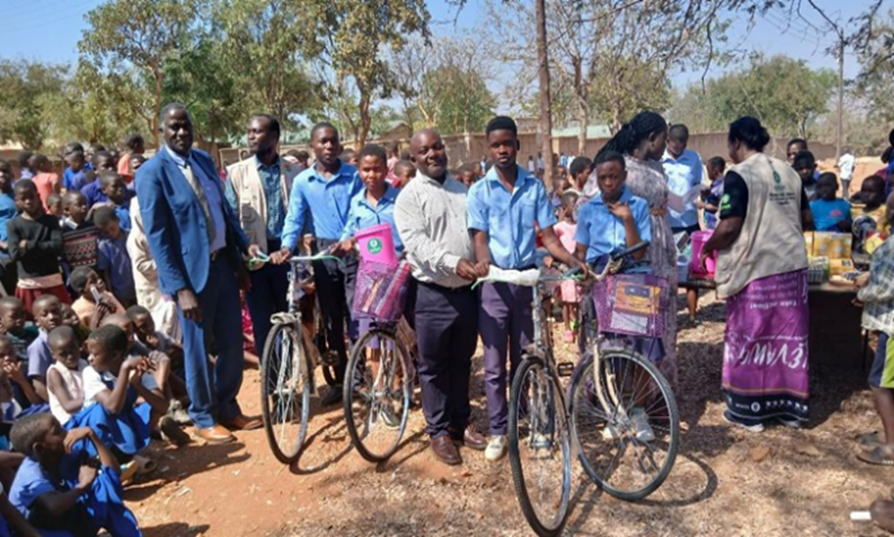
Distribution of bicycles, dignity kits and solar lamps in Balaka
Study Circles & Fixed Boards
To enhance academic engagement, CAVWOC supported the creation of 440 study circles across 11 CDSSs (40 per school), along with the installation of 44 fixed boards (four per school). These boards serve as interactive learning spaces for peer-led discussions.
"As an Open School student, I was shy to ask questions in class. Now, through study circles and fixed boards, I confidently learn from peers before our 1:00 PM sessions."
— Charity Levulo, Michesi CDSS
440
Study Circles
44
Fixed Boards
Solar Lanterns & Calculators
High-performing students were awarded solar lanterns and scientific calculators to encourage academic excellence, and recreational materials were distributed to support holistic development.
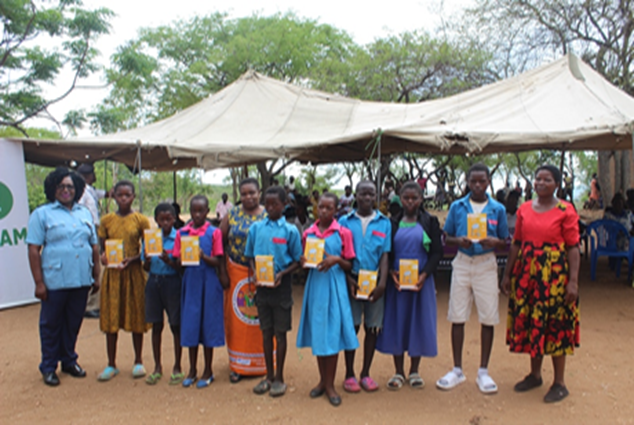
Top learners who received solar lanterns from Buke Primary school in Balaka
Mothers Creating Safe Spaces
Supporting girls' education through practical solutions
Reusable Sanitary Pads & Change Rooms
In 2024, CAVWOC supported 25 Mother Groups across 25 schools, training 75 women to produce reusable sanitary pads from locally sourced materials. These groups have distributed over 1,800 pads, helping reduce menstrual-related absenteeism—for example, by 65% at Mpasa CDSS in Phalombe.
The construction of six change rooms in six schools further improved girls' access to education by providing privacy and dignity during menstruation. These interventions help reduce dropouts, particularly among adolescent girls and young mothers, while also addressing social stigma around menstruation.
25
Mother Groups
75
Women Trained
1,800+
Pads Distributed
6
Change Rooms Built
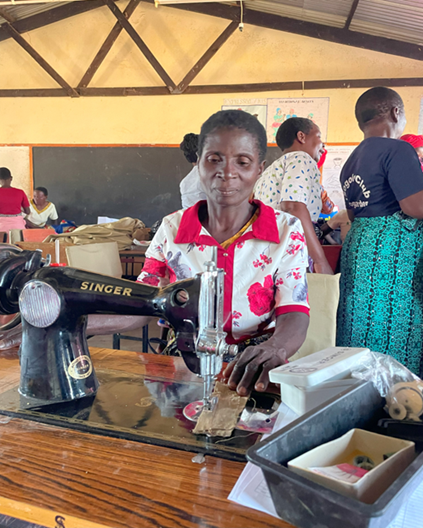
Women sewing reusable sanitary pads
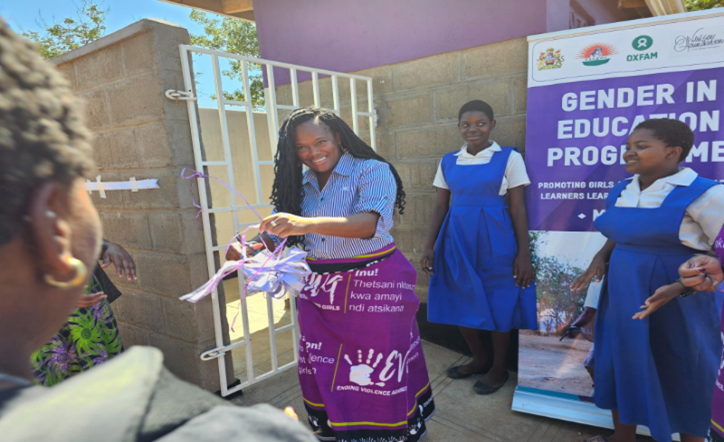
Change room handover ceremony at Buke Primary school in Balaka
Child Protection Initiatives
From By-Laws to Mobile Courts
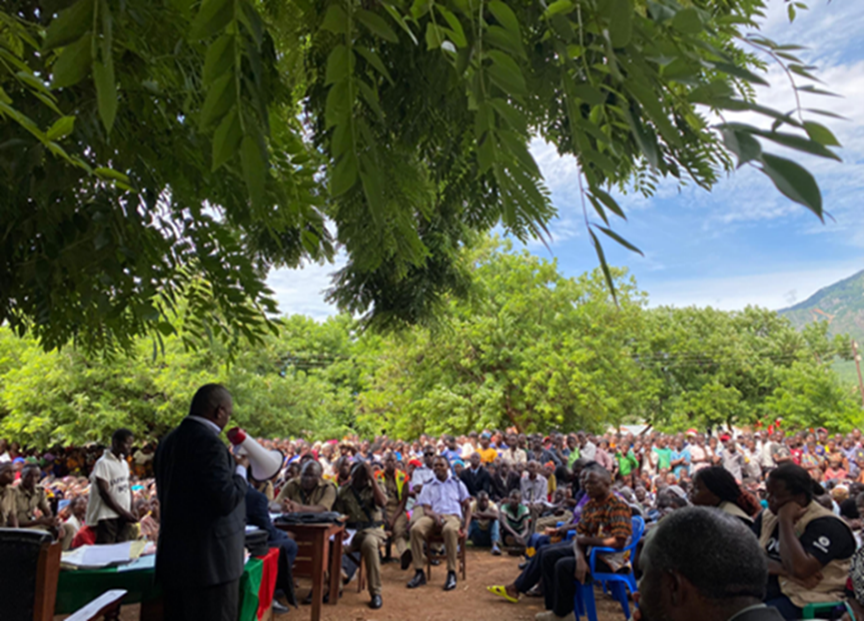
Mobile court session in Phalombe
Mthetsa Nkhanza Network
CAVWOC strengthened child protection structures through the Mthetsa Nkhanza Network, which operates at the Traditional Authority level. This network includes local leaders and volunteers who identify cases of abuse, early marriage, and neglect, and refer them to authorities.
In collaboration with mobile courts, communities now have direct access to justice and legal education. In 2024, the network reached over 5,000 people through awareness campaigns.
Key Achievements:
- Approximately 30 cases of child abuse handled and referred
- Community-enforced bylaws introduced to encourage school retention
- Some communities require parents of dropouts to pay fines or surrender livestock
- Over 5,000 people reached through awareness campaigns
Building Community Ownership
CAVWOC's education interventions go beyond service delivery to build grassroots ownership. Community members helped enforce bylaws, supported mobile court sessions, and engaged in planning awareness campaigns. Trained Mother Groups and Mthetsa Nkhanza Network members now act as frontline advocates for girls' education and child protection.
Feedback from local leaders highlights increased awareness of children's rights and shifting attitudes toward education and gender equality. These locally developed bylaws, backed by traditional leaders, reflect deep community buy-in and underscore the program's sustainability.
"With financial barriers removed, our learners can now focus on their studies."
— Headteacher of Njerenje CDSS
Our Approach
Holistic, community-driven education transformation
Community-Driven
Building local ownership and sustainability through community involvement in all initiatives
Girl-Focused
Addressing specific barriers faced by girls through targeted interventions and support
Rights-Based
Upholding children's right to education through legal frameworks and protection systems
More Thematic Areas
Sexual & Reproductive Health and Rights
Engaging leaders, youth, and health systems to increase access and education around SRHR while challenging harmful practices.
Learn MoreLivelihoods
Training women and girls in entrepreneurship, forming savings groups, and linking them to markets for income generation.
Learn MoreGovernance & Rights
Enhancing community leadership, access to justice, and inclusive participation in decision-making.
Learn More
Support Our Education Programs
Help us ensure every child can remain in school, achieve their potential, and contribute to lasting community development.
